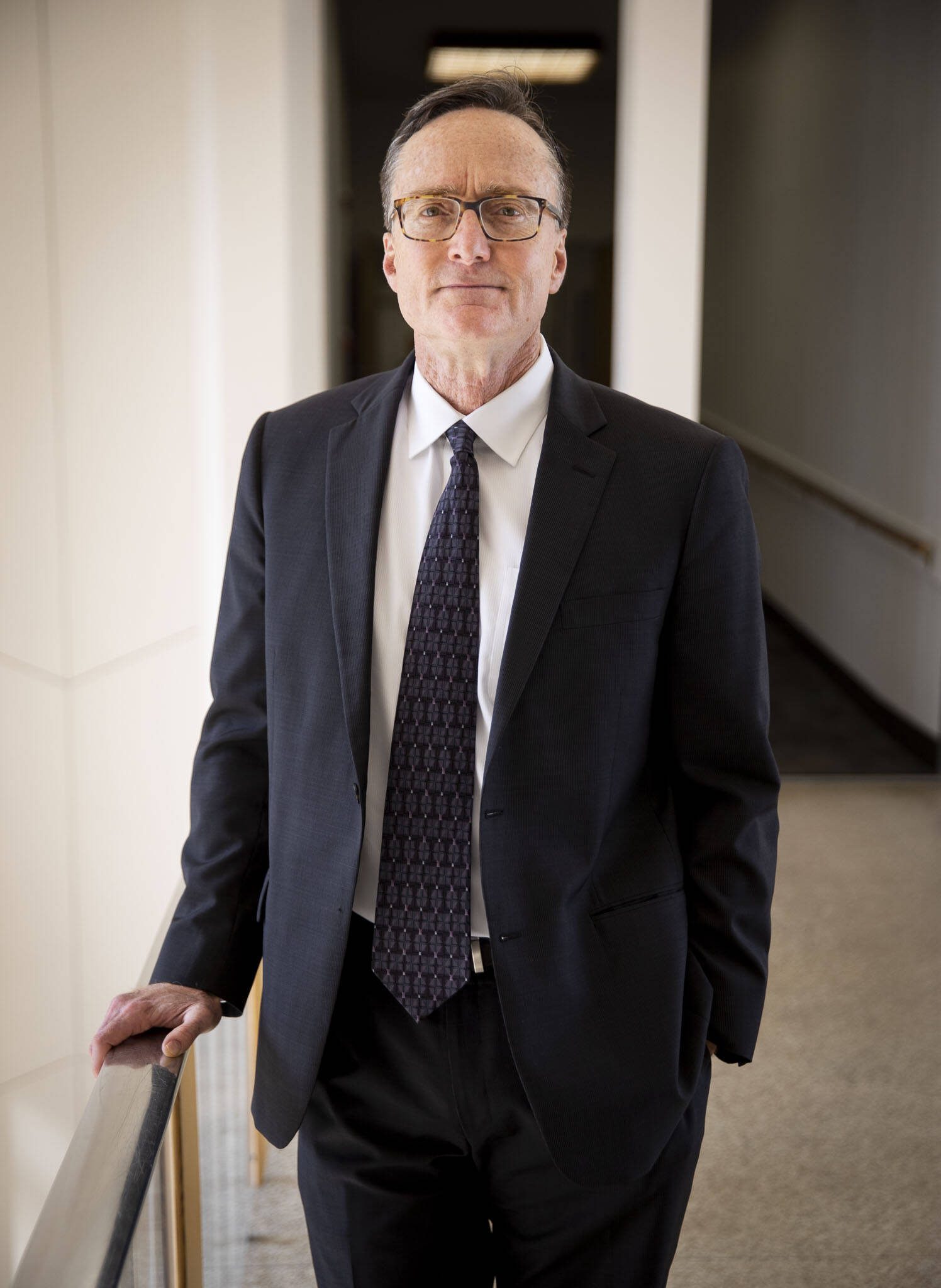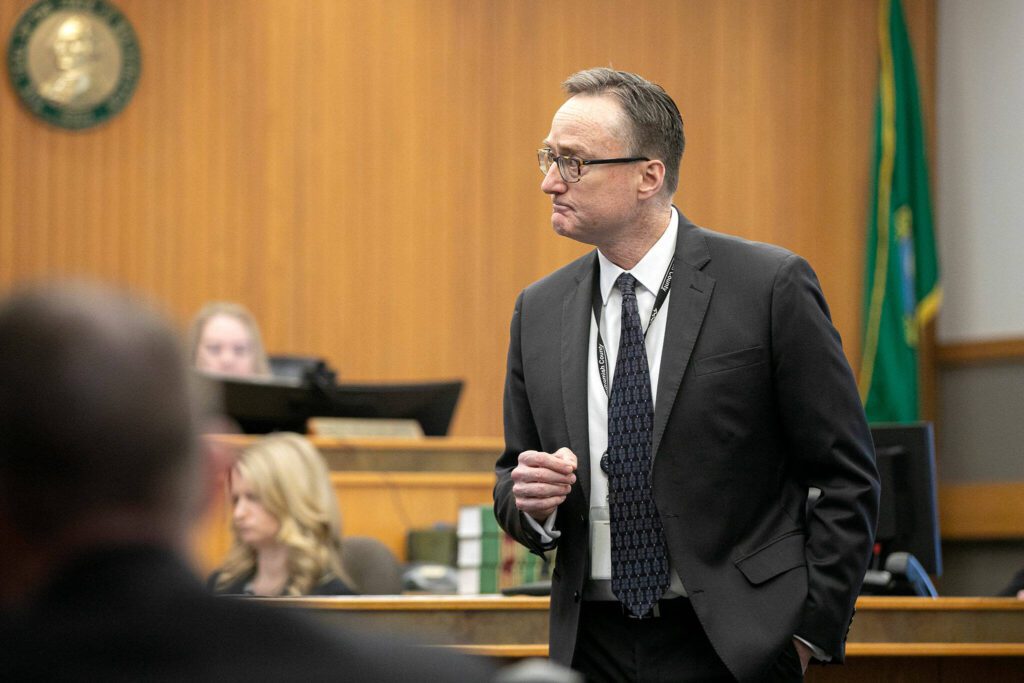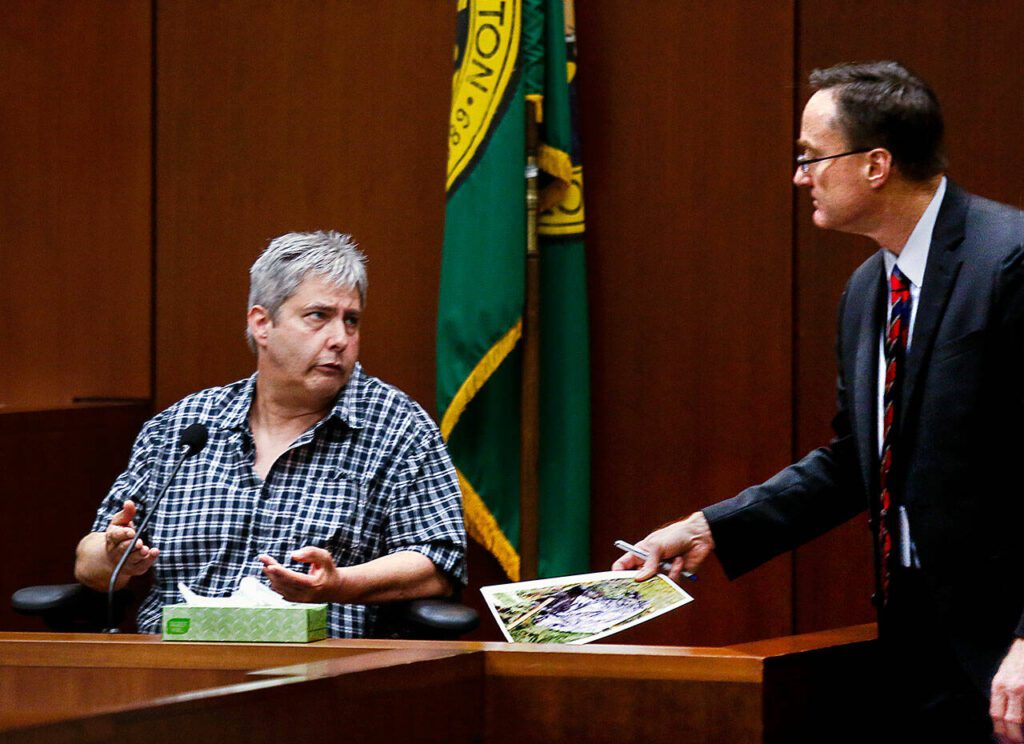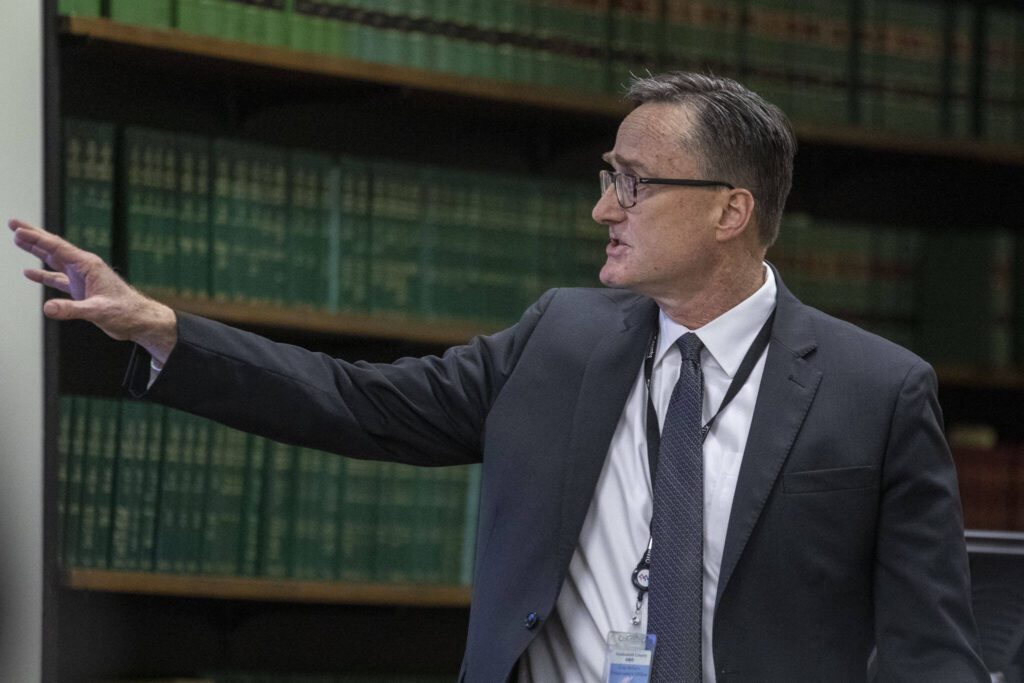EVERETT — You could call him Lord Matheson.
A few years back, Kameon Quillen, the lead victim advocate at the Snohomish County prosecutor’s office, decided to get Craig Matheson a Christmas gift in honor of his Scottish heritage: a square foot of land in the Orkney Islands.
And with it, that royal title on a sheet of paper above the nameplate outside his office.
It’s a title that hints at his importance to the prosecutor’s office, where he handled some of the toughest, most violent cases in the county for 35 years.
He retired this month.
Since joining the office in 1989, Matheson, 62, served under half a dozen elected prosecutors, rising in the ranks to lead the office’s special assault unit and above that to chief criminal deputy prosecutor under Mark Roe. For the past year and a half, he headed the office’s new Major Crimes Unit, prosecuting the county’s most complex cases.
“When the worst happens, you want the absolute best there to handle it,” said Roe, who retired at the end of 2018. “And I knew we had that in Craig Matheson.”
Those cases include the Oso couple shot and killed by their neighbor; a single mom’s long-cold stabbing death; and the 1972 killing of a woman that eventually went to trial but ended when the defendant killed himself in jail during jury deliberations.
That only scratches the surface.
He has long been something of a North Star in the prosecutor’s office.
To county Prosecutor Jason Cummings: “When you think of a confident prosecutor, you see a picture of Craig in the dictionary.”
To deputy prosecutor Bob Langbehn: “He’s been the answer to, ‘What should we do?’”
To Snohomish County Superior Court Judge Bruce Weiss: “There’s not anybody better that you’re gonna see try a case.”
And to Roe, his former boss and longtime friend, Matheson was the “Scottish insurance policy” whose sheer involvement in a case reduced the risk of something going wrong.
‘Hold people accountable’
Matheson was in middle school when he first thought about pursuing a life of crime.
Growing up in Ellensburg, he was a kid when Central Washington University student Susan Rancourt disappeared from campus, later to be identified as a victim of Ted Bundy. That stuck with him, sparking an interest in what would later become known as true crime.
He got his bachelor’s in English at the University of Puget Sound, where he played linebacker on the football team, back when he had what he called a “different body.” From there, he got his law degree at the University of Washington.
After college, he worked briefly at a civil litigation firm that billed clients in 5-minute increments.
“That wasn’t the lifestyle I wanted,” Matheson said.
So he turned to the Snohomish County Prosecuting Attorney’s Office, where money couldn’t be the motivation.
He enjoyed the extensive preparation necessary to consistently try cases in the courtroom. Ask anyone who’s seen him work, the first word they’ll use to describe Matheson is “prepared.” The first felony trial of his career was against defense attorney Karen Halverson, she said.
“I think he was an exceptional prosecutor,” Halverson said.
They’d go on to try many cases on opposing sides.
Matheson was quickly drawn to the most grisly cases. Others might shudder at the thought of engulfing themselves in pictures of dead bodies and the most terrifying acts imaginable.
“You have to be very conscious about keeping things at an emotional distance,” Matheson said, “or it eats you up.”
One that particularly affected him was the murder of Everett police officer Dan Rocha. Though they weren’t close, he had known Rocha, unlike most other victims. But that only made him want the case more. A jury convicted Richard Rotter of aggravated murder after a trial last year. Judge Weiss sentenced him to life in prison.
“You want to hold people accountable for what they did,” Matheson said.
That drive for accountability comes with pressure, the weight of leading the charge for justice for families desperate for it. Quillen was Matheson’s liaison to those families, providing support while he focused on the case. They “became a perfect team,” she said in an email.
Even Weiss noted never having seen Matheson as emotional as he was on the Rotter case. Years earlier, Matheson tried the first homicide case Weiss presided over as a Superior Court judge.
Matheson was never one to keep his work and home life separate. He met his wife while they both worked at the prosecutor’s office. His kids would know a trial was coming up because he’d start running lines for his opening statement at home. He’d be in the office early, late, on weekends.
‘Be the next Craig Matheson’
In his 35 years here, he’s seen first-hand the changes in the system. The biggest is in technology. It’s gone from “just primitive” fingerprinting and bloodtyping, to phones that can track your every move via cell tower, forensic genealogy with DNA and never-ending video evidence.
For example, authorities traced cell tower data of Rotter’s journey from the Tri-Cities to a Starbucks in north Everett, where he killed Rocha. And Rocha’s body-worn camera captured the killing. This has made his job easier, but also resulted in mounds of evidence lawyers have to parse before trying a case.
Matheson’s colleagues called him one of the most calm prosecutors in the courtroom. That’s where he feels at home. He never wanted to be the elected prosecutor, despite his wealth of experience.
When Matheson was trying the long-cold murder case of Bothell teen Melissa Lee earlier this year, Cummings urged others to go watch him in the courtroom, knowing that would be their last chance to see a master at work. Cummings tells them to “be the next Craig Matheson.”
And Matheson tried to nurture that next generation, bringing on younger prosecutors as his co-counsel on major cases to give them experience, something others, including Roe, sometimes avoid.
Langbehn was one of those younger prosecutors. Matheson taught him to slow down, that trials are a “marathon, not a sprint.” He said Matheson’s help shaped the prosecutor’s office.
Matheson and Langbehn tried many cases together, including the Rotter case last year. With Matheson’s retirement, Langbehn will now lead the county’s Major Crimes Unit.
“If I had any success in this office, it’s because I learned from Craig,” Langbehn said.
Matheson was never one to ask for a pat on the back. His results said enough. His colleagues even had to convince him to have a retirement party in the office.
Matheson, who lives in Lake Stevens, plans to stay local, spending time with his four kids. He wants to hike more, having already trekked the Inca Trail and Camino de Santiago.
But first, immediately after his retirement this month, he took a vacation to (where else?) Scotland.
Jake Goldstein-Street: 425-339-3439; jake.goldstein-street@heraldnet.com; Twitter: @GoldsteinStreet.
Talk to us
> Give us your news tips.
> Send us a letter to the editor.
> More Herald contact information.




























